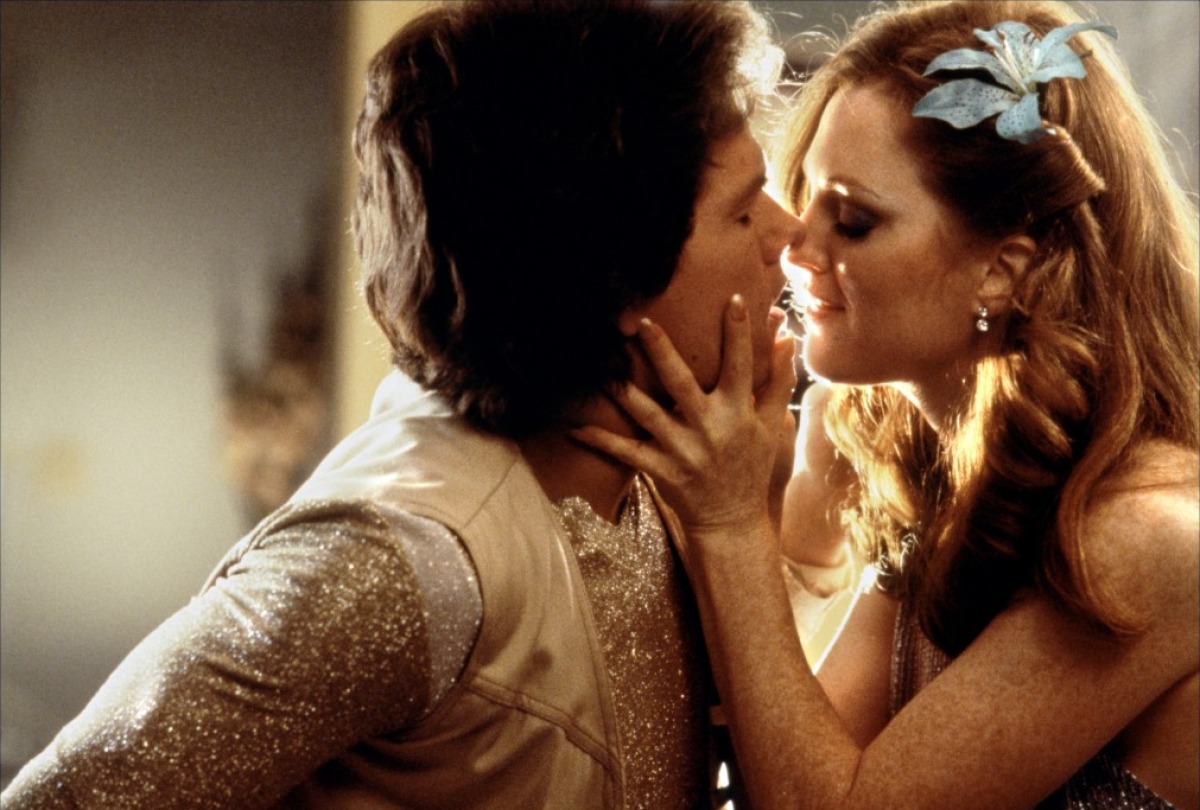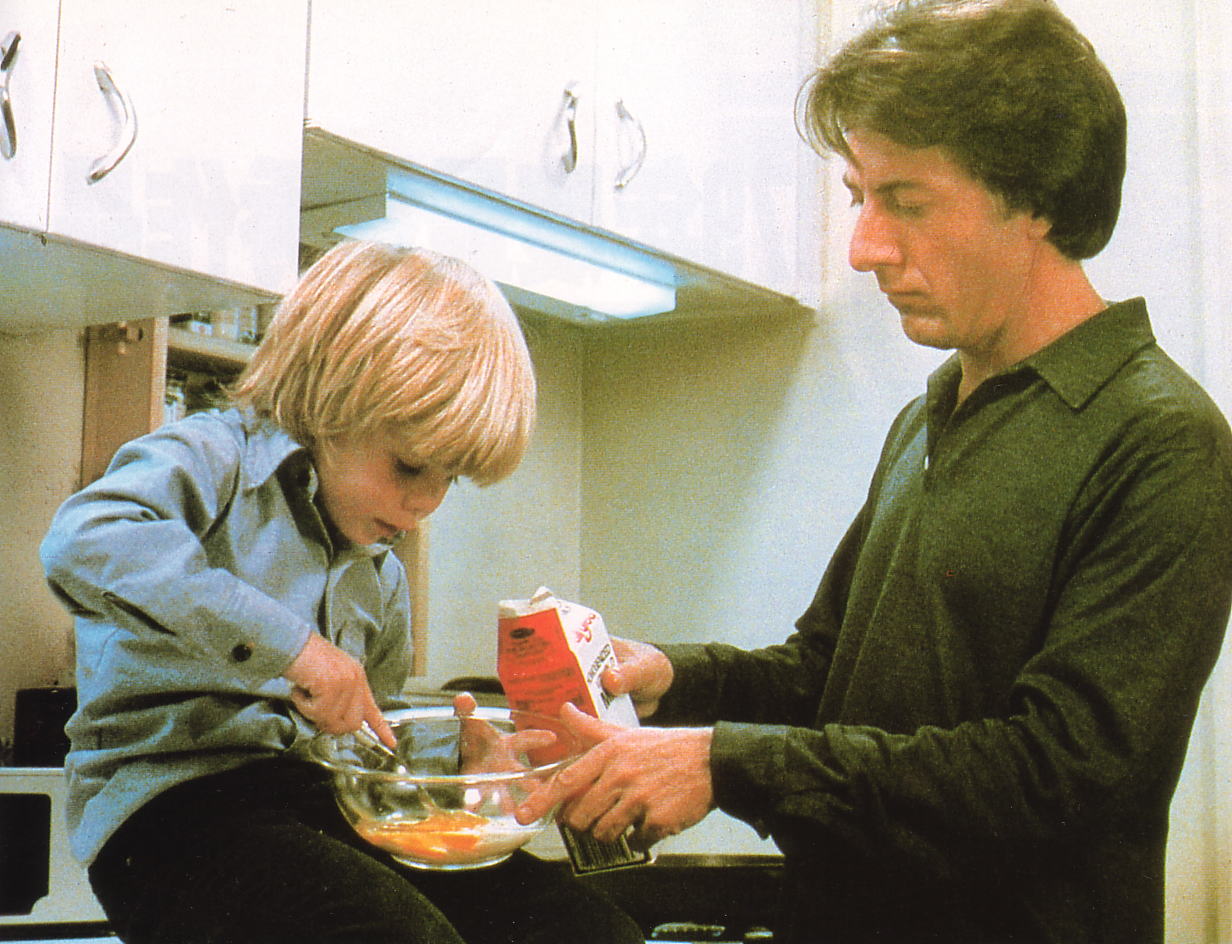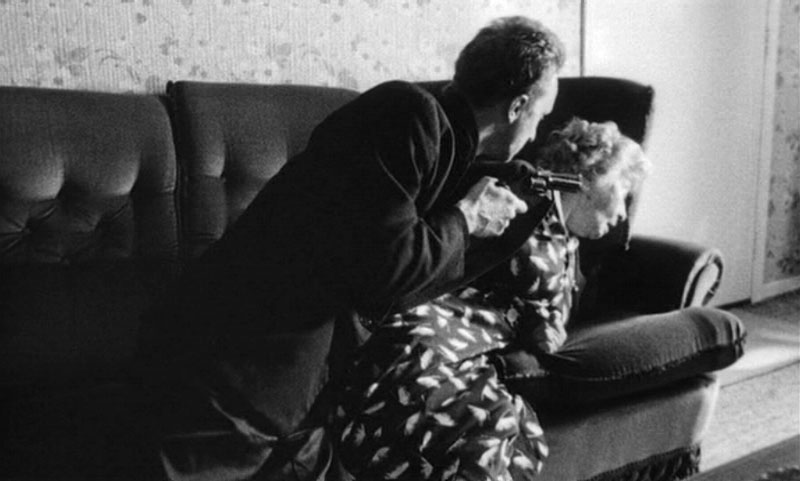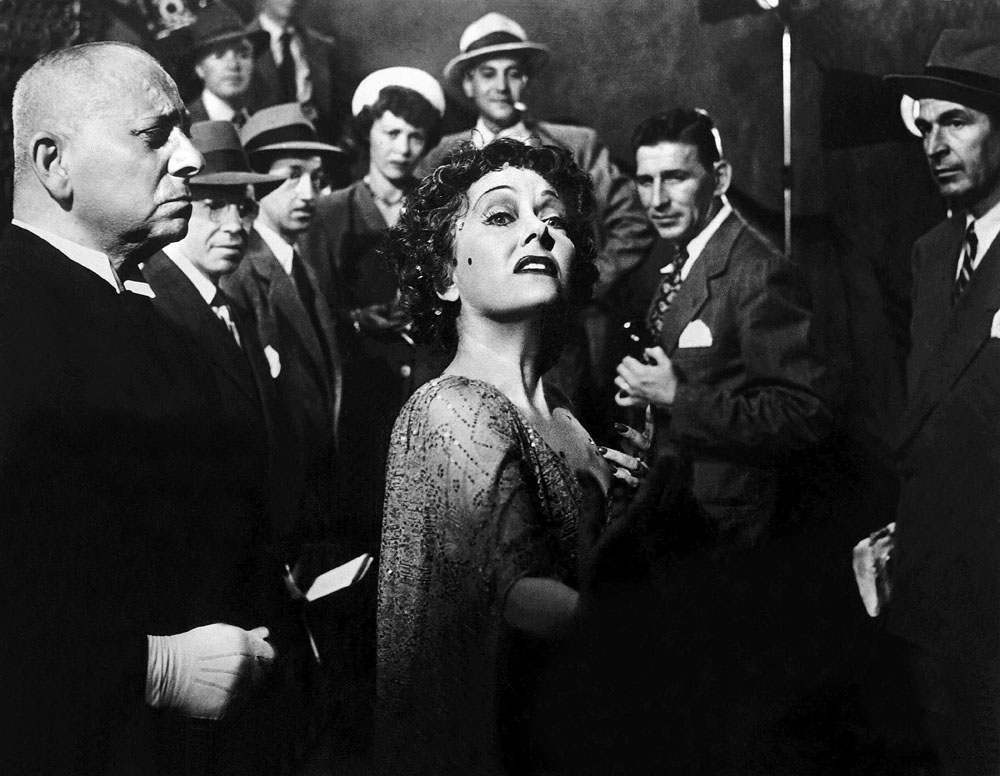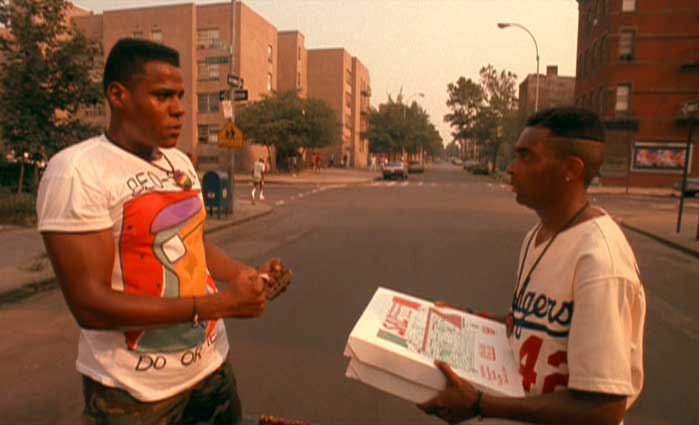6. Boogie Nights
Fame can be a very fickle thing, and sometimes so can artistic integrity. As PT Anderson’s epic tale of sex, drugs and celebrity unfolds, it points out how despite its own stunning cinematography and staging, they are superficial devices to hide the overall tragedy of what each character in Boogie Nights faces.
Dirk Diggler is hailed as an idol by sheer luck alone, as he just happens to stumble upon a natural talent that would be fairly irrelevant in any other profession, his success lies purely on one thing. And if you’ve seen the film you will know what that ‘one thing’ is.
Then there is Jack Horner, who views his pornographic films as an art form, feels insulted when someone suggests he change to video format and is thrilled with the praise of other pornographers. From an outside perspective, it would be laughable, yet here it is his entire world and livelihood. Is such a notion hilarious or heart-breaking? For him and his employees, adult films are a business, not a distraction.
The end of Boogie Night may seem like a happy conclusion, but it is also a surprisingly bleak one. The characters are either in the same place they were at the start, but with less hope of achieving their goals (such making an artistic adult film of gaining custody of their child) or they have achieved some success only by abandoning their moral code. There is less hope for them, and once again they are left in a purely superficial world.
7. Kramer vs Kramer
When this seminal drama was released, divorced may not have been seen as glamourous, but it was too often portrayed as an excuse to stage a simple battle of the sexes story. Kramer vs Kramer pays attention not to who wins in this custody battle, but who loses. The losers are in fact everyone as former lovers turn on each other to gain guardianship of their child and relationships are broken down, torn apart and reduced to weapons that one can use against each other.
It is only made more poignant because the characters of Ted and Joanna (Dustin Hoffman and Meryl Streep) do not do this out of a hatred for one another, it is out of a love for their son. The two characters are complex and humane. They are equally devastated by the prospect of what they must partake in and rather than taking sides or remaining loyal to one party, the screenplay gives both participants empathy so that no matter who wins, we as an audience will remain heartbroken.
The idea of breaking a bond is prominent throughout the film. We witness two equally sympathetic people deal with the issues and balances of a dramatic alteration. Instead of laying blame on one person, Kramer vs Kramer points out that the situation is not one person’s fault and still hurts everyone.
8. Man Bites Dog
Oliver Stone’s Natural Born Killers did a lot to deglamourize the serial killer craze through satirically glorifying them, but this 1992 Belgium film managed to do it to an even greater extent, with an even more brutal and ultraviolent depiction. It is a disturbing documentary style look at a serial killer and a film crew that records his horrific crimes. Rather than witnessing them from afar, we watch every detail of the killer’s atrocities and get a first-hand look of his actions.
The main character Ben shows a frightening disregard for all life other than his own, he is selfish and egotistical but also supresses his psychopathic tendencies when in public. Our introduction to him is when he gleefully chokes a woman on a train and dumps her body, before moving onto his next crime. The acts are impulsive and without meaning, crime has rarely looks as brutal or as pointless.
The fact that as the film goes on, his crimes increase in violence and ferocity, this only makes the idea of following a serial killer more disturbing and giving any attention to their acts as simply a means to an end. The fact that it takes time to humanize its psychopath only makes his contrasting crimes more horrifying.
9. Sunset Boulevard
Once again by deglamourizing our idea of what the celebrity is and how the concept of fame works, a film can represent just how fickle the concept can be. It is a story about a forgotten star living in exile, and the delusional fictions she resorts to telling herself to assure her that she is ‘still big, it’s the pictures that got small’.
The idea of a once idolised star being reduced to the sorrowful and unknown spectre drew so many parallels with real life examples that it would be a wonder that few people saw it at the time. But the reason for that is because so many people ignored such an idea, no one likes to see their favourite actor reduced to a memory. It is exactly what Norma Desmond has become though, living in the shadow of her own fame and left behind by an industry that has no room for stragglers.
Though one would like to imagine that such actors in her position retire gracefully and without repercussions, the unglamorous nature of Norma’s descent forces us to confront the notion that such an idea is not true nor possible.
10. Do the Right Thing
Racial tension is never an easy topic to analyse, and too often it is displayed in (for lack of a better term) a black and white style. It is rare to make a movie about race with such a complex view that shares empathy with all participants. But in his landmark drama, Spike Lee did not take sides, nor draw lines, he simply told the truth.
At the same time, no one in the film is without blame for the events that take place. Long standing racial prejudice permeates the society where the two different cultures co-exist. One can place the blame for the tragic nature of the story on multiple people, is it the white community for provoking their neighbours, or does it lie with the black community for reacting against it? Lee provides no definite answer to this, he just asks us to watch.
Do the Right Thing was snubbed a Best Picture nomination when Driving Miss Daisy won that year’s award, a film that acted as if racism was a thing of the past. This film on the other hand was a strong and clear message that racial tension still existed within a modern society and still led to tragedy.
Author Bio: Joshua Price considers himself more of a fan that happens to write near insane ramblings on movies and directors like Scorsese, Spielberg, Fellini, Kubrick and Lumet rather than an actual critic and other insane ramblings can be found at criticalfilmsuk.blogspot.co.uk.
